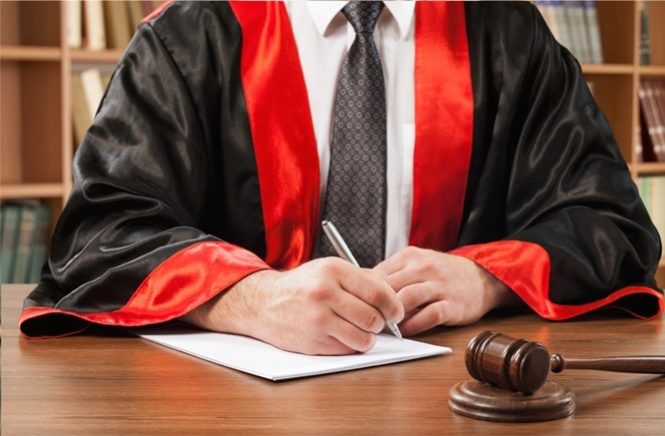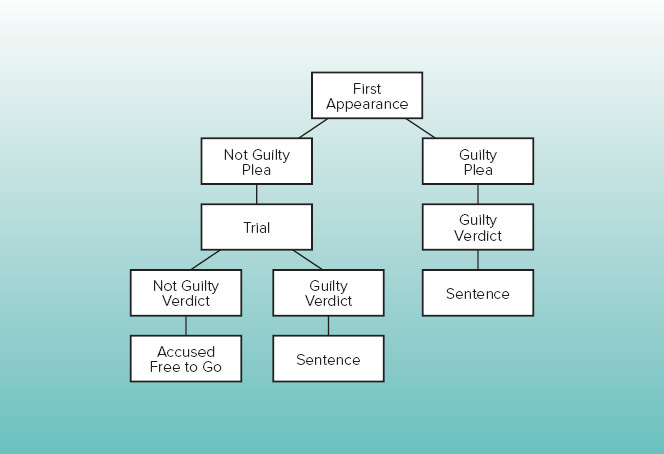
Criminal Trials
- People who are charged with a crime can freely choose whether to admit to the crime or have a trial.
- Charges must be proven beyond a reasonable doubt.
- People charged with a crime do not need to answer questions about the crime if they do not want to.
If you are charged with a crime, you will receive an appearance notice or a promise to appear. The notice tells you the time and date you need to go to court. All criminal charges are first heard in Provincial Court.
The first time you go to court you will be asked to enter a plea. You admit to the crime or deny committing the crime. If you admit to the crime, you say “guilty.” If you do not admit to the crime, you say “not guilty.” If you need more time to decide what to do or want to talk to a lawyer, you can ask the court to hear the case at a later date.
In some cases, you must choose which court you want to hear the case. For some more serious offences you can choose to go to the Court of King’s Bench. If you choose King’s Bench, you will enter a plea later. In King’s Bench there will be a Preliminary Inquiry before the case goes any further. A judge hears about the case and decides if there is enough evidence against you to take it to trial.
At the trial the
You have the right to remain silent. You do not have to give evidence at trial. No one can force you to answer questions about what happened. If you choose to testify you may be cross-examined. You must answer any question asked, as long as the question complies with the rules of evidence.
If the charges are proven beyond a reasonable doubt at the trial, the judge or jury will find you guilty. Proven beyond a reasonable doubt means that the judge or jury thinks that the only reasonable explanation for the evidence is that you committed the crime.
If the charges are not proven, you must be found not guilty. Another way of saying this is that you are acquitted. After a person has been tried and acquitted they may not be tried for that crime again, unless the Crown Prosecutor successfully appeals the case.


